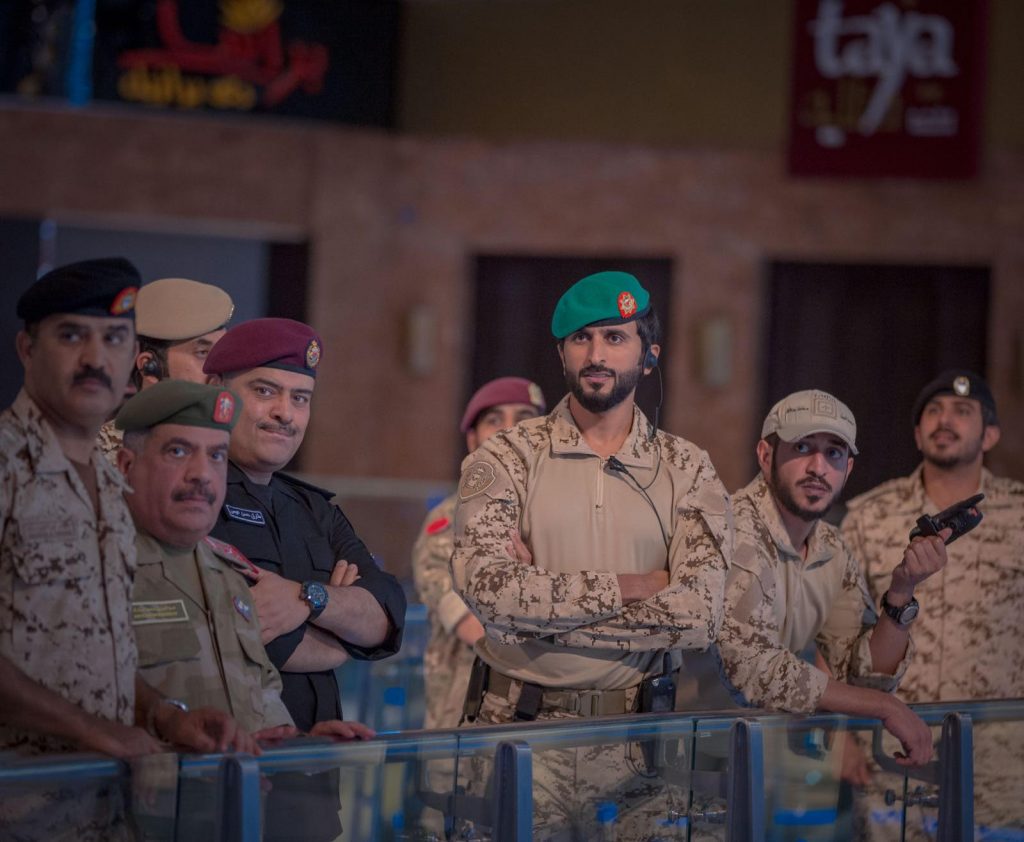Improving counterterrorism and law enforcement cooperation between the United States and the Arab Gulf States
In the wake of 9/11, US counterterrorism cooperation with Gulf countries has expanded substantially. But while much has been written about such cooperation through military and intelligence channels, there is less understanding about the parallel expansion of counterterrorism cooperation through law enforcement and other civilian channels. To fill this gap, the Atlantic Council’s Scowcroft Middle East Security Initiative organized a task force of experts and former US government officials led by nonresident senior fellow Thomas S. Warrick, former Deputy Assistant Secretary for Counterterrorism at the US Department of Homeland Security.
The resulting Atlantic Council task force report “Improving Counterterrorism and Law Enforcement Cooperation between the United States and the Arab Gulf States” by nonresident senior fellow Thomas S. Warrick and program assistant Joze Pelayo, presents recommendations to improve and increase cooperation in civilian counterterrorism, law enforcement, border security, and aviation security between the United States and the Arab countries of the Gulf.
In writing the report, the authors drew on research and expert interviews with officials across the region. The study identifies a need for increased cooperation to address the threat from terrorism, whether by terrorist groups or state sponsors of terrorism. The authors take a comprehensive look at the current threat landscape, including the ongoing terrorist threat from ISIS and al-Qaeda, as well as Iran, whether from its state-sponsorship of terrorism, its support for proxies, and its non-kinetic warfare and covert influence efforts against the United States and a number of Arab Gulf States. The report ends by recommending that these threats can be addressed not only by military deployments or intelligence agencies, but also by increased cooperation among civilian security departments and agencies.
Through an interactive table, the study also attempts to show how security services of the United States align with comparable services of the countries of the Arab Gulf States—Bahrain, Iraq, Kuwait, Oman, Qatar, Saudi Arabia, and the United Arab Emirates (UAE), while illustrating some of the institutional challenges that civilian security services have in working together.
This graphic shows how security services of the United States align with comparable services of the countries of the Arab Gulf—Bahrain, Iraq, Kuwait, Oman, Qatar, Saudi Arabia, and the United Arab Emirates (UAE). Information is based on public sources, primarily the Internet web sites in the English language of the services in question. Some recent reorganizations of the services or changes in their authorities may not be reflected in this graphic. In Oman, for example, Sultan Haitham announced a governmental reorganization on August 18; this may not be fully reflected in this graphic. Also, the security services of Iraq in this graphic refer to the institutions of the national government in Baghdad. Under Iraq’s federal system, most security institutions in the Iraqi Kurdistan Region are separate and under the authorities of government of the Iraqi Kurdistan Region.
The interactive chart focuses primarily on non-military and non-intelligence security services, recognizing that both the United States and the Arab Gulf have services that cut across these lines. For the United States, the Department of Defense and the agencies of the US Intelligence Community are not included, nor are most Arab Gulf militaries, except where they also perform functions that could be considered civilian in the United States, such as maritime security and guarding national borders from non-military threats.
This visual illustrates some of the institutional challenges that civilian security services have in working together. The United States is a constitutional federal republic based on the English legal system as it was in the 18th Century of the Common Era. Most of the Arab Gulf countries have their own Gulf Arab traditions and have incorporated aspects of the Ottoman, British, French, and (occasionally) American models for organizing their military, security, and judicial services.
Bar charts illustrate how closely the respective Arab Gulf security services align with their American counterparts: (ranging from no-match to a near-perfect) match, based on a subjective assessment based primarily on their stated missions.
For media inquiries, please contact press@atlanticcouncil.org.

The Scowcroft Middle East Security Initiative (SMESI) provides policymakers fresh insights into core US national security interests by leveraging its expertise, networks, and on-the-ground programs to develop unique and holistic assessments on the future of the most pressing strategic, political, and security challenges and opportunities in the Middle East.

Counterterrorism Study Group
The Counterterrorism Study Group is a forum for former counterterrorism officials to review the latest threats, to understand emerging trends and future predictions, and to explore creative new proposals for improving the effectiveness of current policies and operations.


